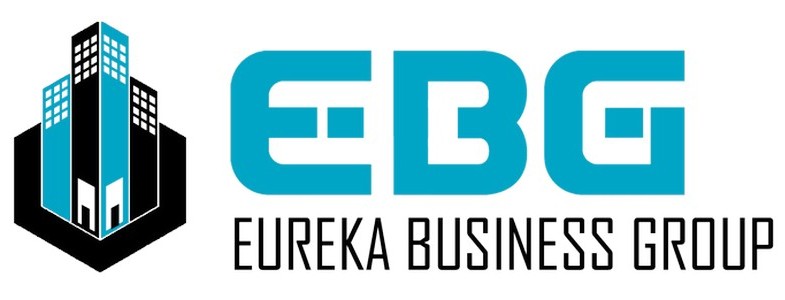- Home
- Commercial Broker Services
- Business Broker Services
- Business Owners Resources
- Maximizing Your Budget: Cost-Effective Tips for Leasing Retail Space
Maximizing Your Budget: Cost-Effective Tips for Leasing Retail Space
Leasing retail space is a significant financial commitment for any business. It can be a make-or-break factor for your venture, influencing everything from foot traffic to your monthly expenses. Therefore, it’s crucial to approach this decision with a well-thought-out strategy that maximizes your budget while securing the best possible location for your needs. Here are some cost-effective tips to help you navigate the process and make the most of your leasing dollars.
1. Understand Your Needs and Priorities
Before you even start looking at potential spaces, it’s essential to have a clear understanding of your business needs. What size space do you require? How important is location to your business model? Do you need a storefront, or would an office suite suffice? By identifying your priorities, you can narrow down your search to spaces that meet your criteria and avoid overspending on unnecessary features.
Pro Tip: Create a list of must-haves and nice-to-haves. This will help you stay focused during your search and negotiations.
2. Research the Market
Knowledge is power, especially in real estate. Take the time to research the local market and understand the going rates for retail spaces in different neighborhoods. This will give you a benchmark for what is reasonable and help you spot both good deals and overpriced properties.
Pro Tip: Use online resources like commercial real estate websites, local business forums, and market reports to gather data. You can also consult with a local real estate agent who specializes in commercial properties.
3. Consider Secondary Locations
While high-traffic areas are desirable, they come with a high price tag. Consider looking at secondary locations that may offer lower rents while still providing adequate foot traffic and accessibility. Often, these locations can become trendy hotspots as new businesses move in and the area develops.
Pro Tip: Look for up-and-coming neighborhoods that show signs of growth, such as new construction projects, increasing property values, and investments in infrastructure.
4. Negotiate the Lease Terms
Everything is negotiable in real estate. Don’t accept the first offer you receive; instead, negotiate the lease terms to better fit your budget. Key areas to focus on include the base rent, lease duration, rent escalations, and any additional costs like maintenance fees.
Pro Tip: Hire a commercial real estate attorney or broker to assist with negotiations. Their expertise can help you secure more favorable terms.
5. Look for Incentives and Concessions
Landlords often offer incentives to attract tenants, especially in competitive markets or during economic downturns. These incentives can include a rent-free period, reduced rent for the first few months, or a tenant improvement allowance to customize the space to your needs.
Pro Tip: Always ask about potential incentives or concessions during the negotiation process. Even if they are not initially offered, showing interest can prompt the landlord to provide them.
6. Evaluate the Total Cost of Occupancy
The base rent is just one part of the total cost of leasing a retail space. Be sure to consider additional costs such as utilities, property taxes, insurance, maintenance, and common area maintenance (CAM) fees. These costs can add up quickly and significantly impact your budget.
Pro Tip: Request a detailed breakdown of all additional costs before signing the lease. This will help you avoid any surprises and better plan your budget.
7. Optimize Space Utilization
Maximize the use of your leased space to get the most value for your money. This could involve creative interior design, multi-purpose furniture, or efficient layout planning. The goal is to ensure that every square foot is used effectively to support your business operations.
Pro Tip: Consider consulting with an interior designer or space planner who specializes in commercial spaces. Their expertise can help you create a functional and attractive environment that enhances your business.
8. Leverage Technology
Technology can be a powerful ally in managing and optimizing your retail space. Use software tools to track foot traffic, sales patterns, and customer behavior. This data can help you make informed decisions about your space usage and identify areas for improvement.
Pro Tip: Implement point-of-sale (POS) systems, customer relationship management (CRM) software, and inventory management tools to streamline operations and enhance efficiency.
9. Consider Shared or Co-Working Spaces
If your business model allows for it, consider leasing a shared or co-working space. These spaces often come fully furnished and equipped with essential amenities, reducing your upfront costs. They also offer flexible lease terms, which can be beneficial if you’re uncertain about your long-term needs.
Pro Tip: Look for co-working spaces that cater specifically to retail businesses. These spaces often provide additional services and support tailored to the needs of retail tenants.
10. Plan for Future Growth
While it’s essential to stay within your current budget, it’s also important to consider your future growth. Look for spaces that can accommodate your business as it expands, either through flexible lease terms or the potential for adjacent space to become available.
Pro Tip: Negotiate a lease that includes options for expansion or the right of first refusal on adjacent spaces. This can give you the flexibility to grow without the need for a disruptive move.
Conclusion
Leasing retail space is a critical decision that requires careful planning and strategic thinking. By understanding your needs, researching the market, and negotiating effectively, you can secure a space that meets your requirements without breaking the bank. Additionally, optimizing space utilization and leveraging technology can further enhance the value you get from your lease. Remember, every dollar saved on your lease is a dollar you can invest back into your business. With these cost-effective tips, you can maximize your budget and set your business up for success.



